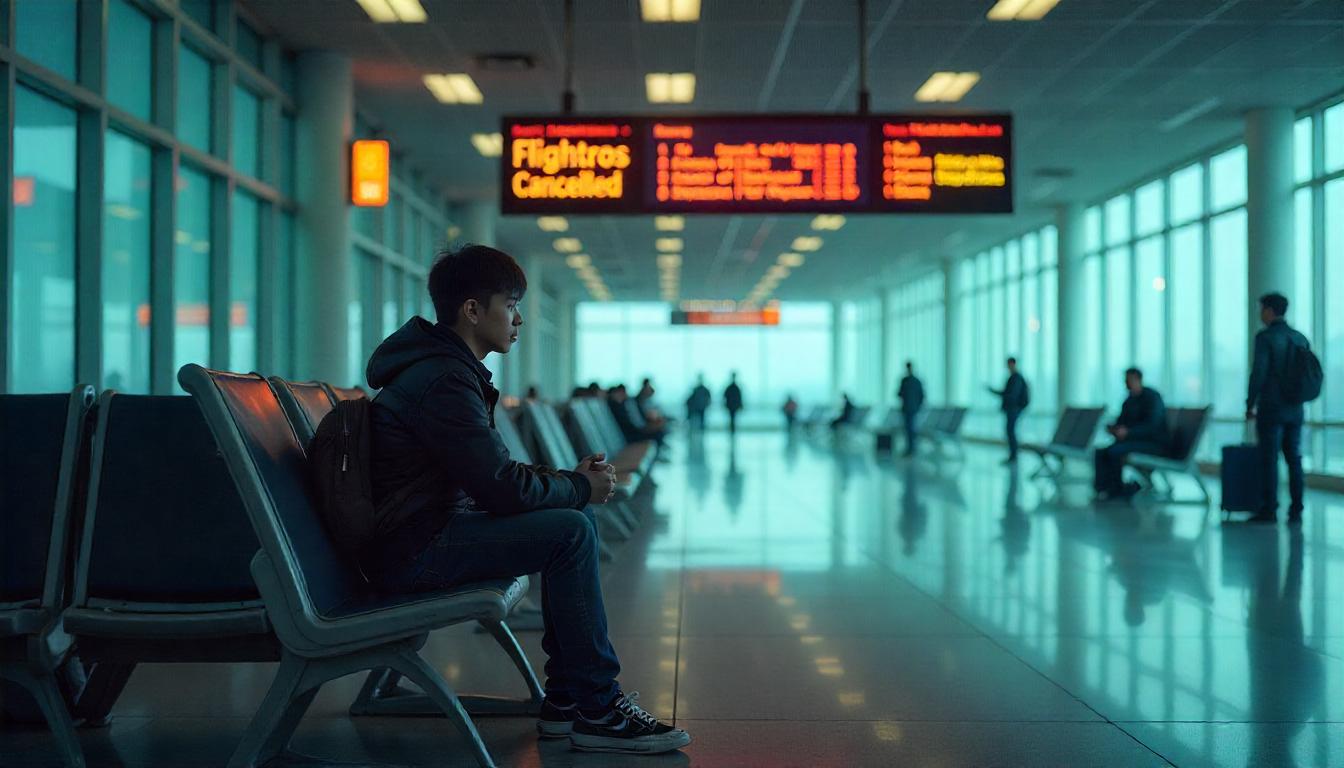Riyadh's King Khalid International Airport Ensures Safe Emergency Landing of Air India Flight Amid Growing Security Threats: What You Need to Know About Aviation Safety - Travel And Tour World
Sunday, June 22, 2025

Following the discovery, the crew followed , immediately diverting the plane to where it landed safely. Authorities from began an investigation to determine the source of the threat, while passengers were safely relocated to secure sections of the terminal.
Though the scare caused a temporary disruption in travel plans, the security sweeps conducted upon landing revealed no explosives onboard, offering relief to everyone involved. This incident is part of an unsettling pattern of bomb threats plaguing global flights, with similar events occurring recently involving other But what does this alarming trend mean for the future of air travel security? In this feature, we’ll explore the details of the Air India emergency landing, its implications for airline security, and the increasing challenges that airports face in dealing with bomb threat hoaxes.
In situations like this, airline operators are required to prioritize the safety of passengers above all else. Air India, despite the disruption, responded promptly to the emergency. The airline’s communication team acted swiftly to update passengers about the situation, ensuring their well-being throughout the ordeal.
Air India later confirmed in a statement that all passengers would be rebooked and flown to Delhi once security operations were concluded. This efficient handling of the crisis showcased the airline’s ability to manage such high-stress situations effectively.
This incident, while resolved without harm, is part of a growing global issue involving bomb threats targeting commercial flights. Bomb threat hoaxes have become increasingly frequent in recent years, with airlines and airports across the world facing a new level of challenge when it comes to ensuring the safety of passengers and the integrity of the flight operations.
In response to the rise of bomb threats and similar security concerns, airports and airlines worldwide have implemented advanced security protocols to keep passengers safe.
While bomb threats often turn out to be false alarms, the consequences are not limited to mere inconvenience. The impact of such threats stretches beyond the immediate disruption:
While global aviation security has advanced significantly, there is always room for improvement. To combat the rising threat of bomb hoaxes, stakeholders in the aviation industry are considering several potential solutions.
- : Airlines and authorities are increasingly focusing on educating the public about the seriousness of bomb threats and the penalties for making false claims. Raising awareness is crucial in preventing hoaxes from occurring.
The emergency landing of Air India Flight AI-114 in Riyadh is a reminder that the security of air travel remains a top priority. While this incident ended without tragedy, it serves as a stark reminder of the complexities airlines face in dealing with potential threats. As the frequency of bomb threat hoaxes rises, the aviation industry must remain vigilant, adapting its security measures and responses to ensure the safety and peace of mind of passengers worldwide.
As we look to the future, it’s clear that the world of aviation will continue to evolve, balancing the demands of security with the growing need for efficient, seamless travel. The ultimate goal, of course, is to ensure that incidents like this one are reduced to a minimum, and that air travel can remain both safe and stress-free for everyone involved.
Tags: air india, Air India flight AI-114, Airline News, aviation security, Birmingham, Birmingham tourism news, Boeing 787-8 Dreamliner, Delhi, Delhi tourism news, India, India tourism news, indira gandhi international airport, king khalid international airport, Middle East, middle east tourism news, Riyadh, Riyadh tourism news, saudi arabia, Saudi Arabia Tourism News












